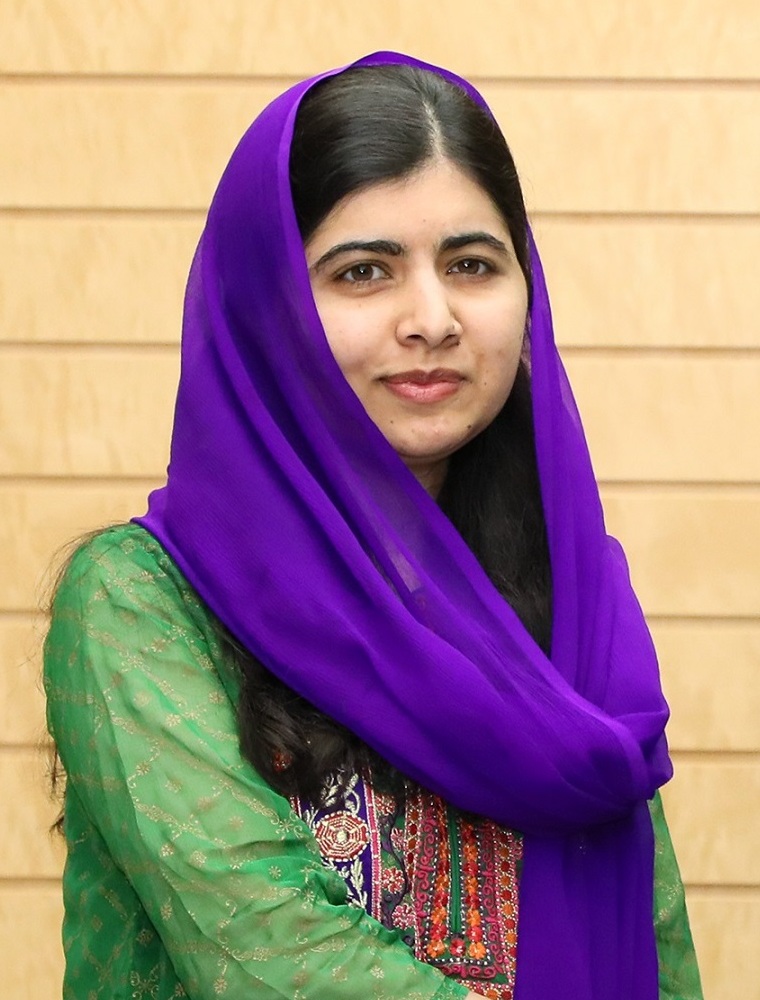b) Malala Yousafzai
Malala Yousafzai’s remarkable journey and advocacy have made her an iconic figure in the global fight for children’s education, especially for girls. In 2014, she was awarded the Nobel Peace Prize, becoming the youngest-ever recipient of this prestigious award, at the age of just 17.
Her story begins in her native Pakistan, where she became an outspoken advocate for girls’ education at a young age. Malala’s advocacy grew in response to the Taliban’s increasing influence in Pakistan, particularly their efforts to restrict girls’ access to education. Her courage in the face of such adversity brought her to international attention.
In 2012, Malala’s advocacy efforts made her a target of the Taliban. She survived a life-threatening assassination attempt when a gunman boarded her school bus and shot her. This attack sparked international outrage and furthered her status as a symbol of resistance against the oppression of children’s rights to education.
Following her recovery, Malala continued her advocacy with even greater fervor. She co-authored the memoir “I Am Malala,” became a prominent global speaker, and founded the Malala Fund, an organization dedicated to ensuring every girl has the opportunity to achieve a future she chooses.
Her receipt of the Nobel Peace Prize in 2014 was in recognition of her struggle against the suppression of children and young people and for the right of all children to education. Malala’s story is not just one of personal triumph, but also a testament to the power of peaceful protest and the impact one individual can have on the world. Her work continues to inspire and drive efforts for educational equality across the globe.

